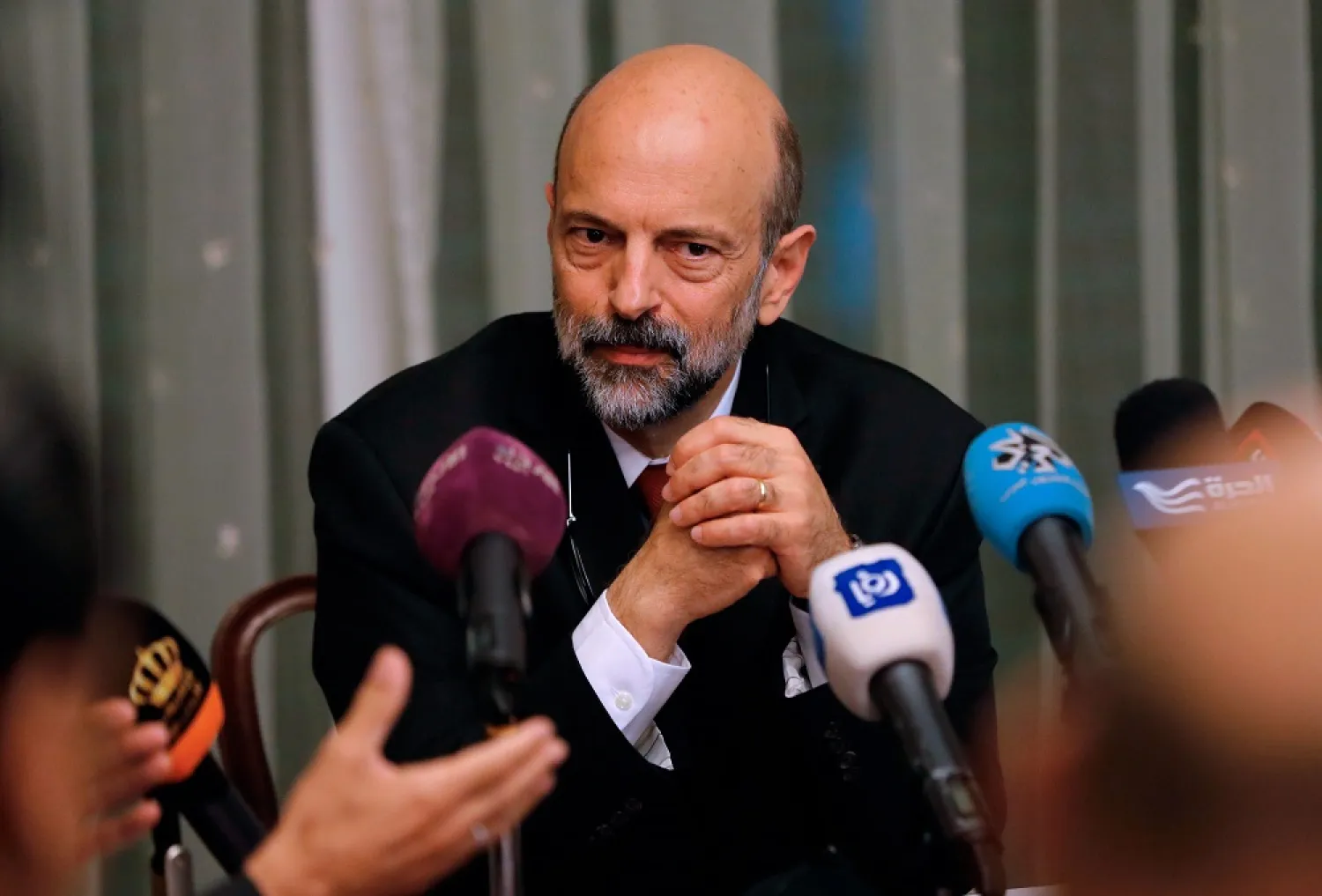Jordan’s Prime Minister Omar Razzaz stressed that his country’s position towards the Palestinian cause will never change, voicing his support to the two-state solution, which should lead to ending the Israeli occupation and establishing an independent Palestinian state with East Jerusalem as its capital.
He made his remarks during a meeting on Monday with his Palestinian counterpart Rami Hamdallah.
He reiterated that Jordan's position on the Palestinian issue, Jerusalem and the United Nations Relief and Works Agency for Palestine Refugees (UNRWA) is clear and consistent with the Palestinian stance, stressing that Palestine remains at the top of Amman’s foreign diplomacy agenda.
He pointed out during the talks, which were attended by a number of Palestinian and Jordanian ministers and officials, the importance of bilateral coordination at the highest levels under the directives of King Abdullah II and Palestinian President Mahmoud Abbas on all political, economic and social issues.
Razzaz pointed out that Jordan looks forward to further cooperation and coordination to increase bilateral trade between the two sides.
“We hope that the trade volume would reach $500 million,” he said.
He stressed the “historic and solid” Jordanian-Palestinian relations, saying that “we are one people in two states."
Furthermore, he said that his government is working, through the relevant ministries and their counterparts in the Palestinian territories, to come up with solutions to further develop economic and trade relations and create commercial and investment opportunities for the Jordanian and Palestinian business community.
Amman wants to further facilitate container traffic to and from the Palestinian territories, Razzaz continued, adding that work is under way to upgrade the King Hussein Bridge. This will bolster trade exchange and facilitate the entry of Palestinian goods to Jordan.
Hamdallah, for his part, commended Jordan’s support for the Palestinians, especially its stance on the so-called “deal of the century,” and their right to establish an independent Palestinian state with East Jerusalem as its capital.









